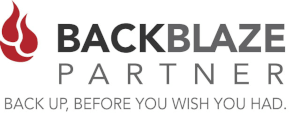Most of us today love using some sort of Cloud Storage. Should you take a chance at putting your data in the Cloud? or do you feel a bit more secure hosting on your own server? There are lot's of opensource options today that make it really easy to host your own dropbox like server and to be able to host it on your own premises.
Privacy Concerns
One of the biggest concerns is privacy of your data. We have seen more and more data breaches recently and Cloud Service providers are not immune. All you have to do is do a quick google search for Cloud Storage breaches and you will come up with a bunch of them. Dropbox has had 2 major breaches in their short lifetime.
DROPBOX
DROPBOX - 68 million Dropbox user accounts were compromised in 2016. The attackers exploited an improperly secured employee password to obtain email addresses and hashed and salted passwords from breached accounts that were created in 2012 and earlier.
MICROSOFT
MICROSOFT - In late 2010, Microsoft experienced a breach that was traced back to a configuration issue within its Business Productivity Online Suite. The problem allowed non-authorized users of the cloud service to access employee contact info in their offline address books.
Do you really want to trust your data in the cloud?
Device Limits
Most cloud storage providers offer a limit on how may devices can connect to an account. They do offer more but it will cost you! Self-Hosted solutions have no limits!
Storage Limits and Costs
Stoarge is usually free for 5 - 15GB of storage. If you want more you will generally have to pay per / amount and per / user fee's. Notice Google's recent policy change in regards to google photo's.
GOOGLE - From 1 June 2021, Google Has announced that it will start reducing the storage of photos in your Google Account to a maximum of 15GB. After reaching the maximum limit of 15 GB, you need to purchase the Google One service to increase your storage capacity.
COMPARE Self-Hosted Cloud Storage Solutions
A good comparison of some of the Self-hosted Cloud Solutions and the Online Cloud providers can be found at this link. https://nextcloud.com/compare/
BENEFITS of Self-Hosting your Own Cloud Server
Control who can access your data
Give staff an easy, flexible and secure way to share files and folders. Safely involve contacts outside your organization with select documents. Share public links shielded by passwords and expiration dates. The self-hosted productivity platform that keeps you in control
Access Control
Protect, control and monitor data and communication across your company. Guarantee compliance with business and legal requirements. Keep your data on servers you own, at all times. Nothing leaks, not even metadata.
Productivity
Enable productivity across any platform, whether in the office or on the road, to share, collaborate and communicate across organizational boundaries. Nextcloud provides transparent access to data on any storage.
Media
Store and sync all different type of media. Documents, Photos, Video Files, PDF's, Product Catalogs etc....
Compliant
- Healthcare and HIPPA
- GDPR Compliance
- Auditing Capabilities
- File Access Control
2FA
Ability to enable and control 2FA for your users
Additional APPS
Ability to Install Apps like openoffice that will run directly in your browser!
COST
The cost difference to self host will depend on how many users your organization has. The more users you have, the more you will save by self-hosting.
Clustered Networks
At Clustered Networks we use both Syncthing and Nextcloud for our organization. If you require assistance in getting setup with either of these solutions or a different solution of your choice we would be more than happy to assist you with the setup and maintenance of your solution.
Located in Edmonton, AB Canada, Clustered Networks was Incorporated in 2001 and has offered Network / Internet and IT Consulting services for over 20 years. We offer personalized service! Call Us Today! - Click Here for our Contact Info





